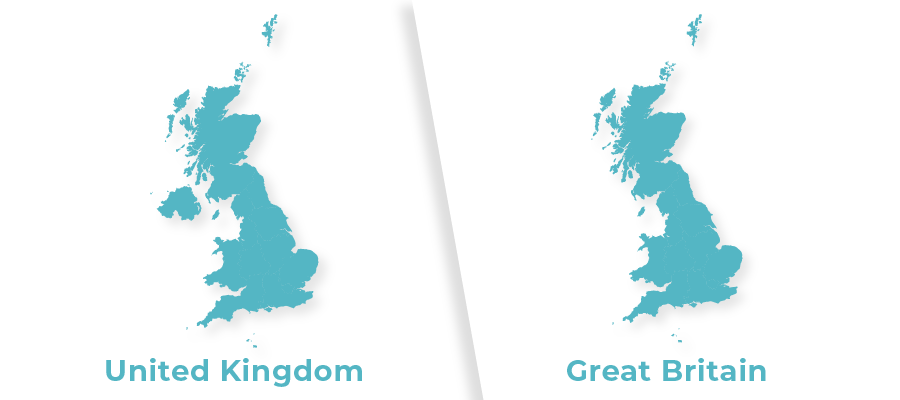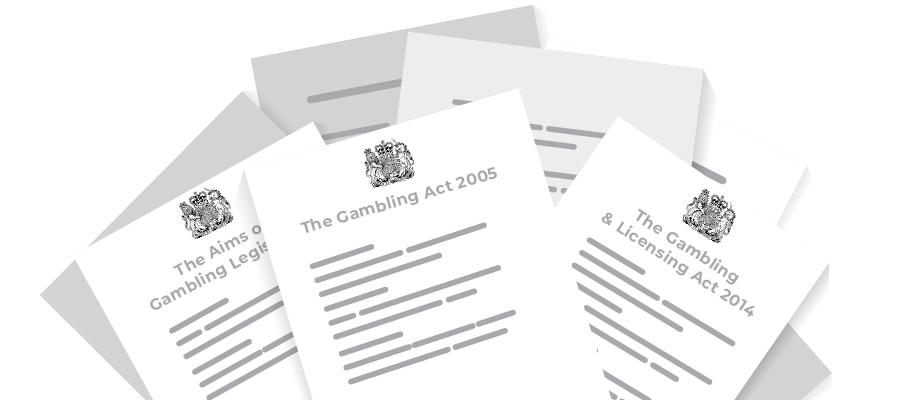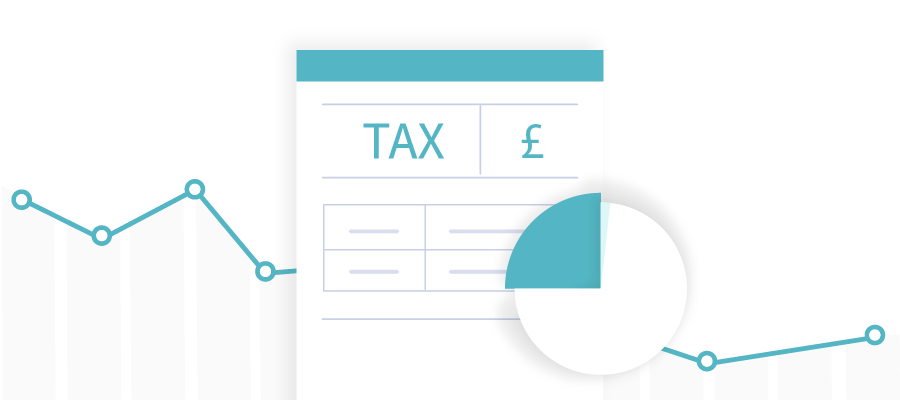So, you want to know about the UK gambling laws and what opportunities are available to you to enjoy gambling in a safe and fun way? You're in the right place.
Although there are a relatively small number of gambling laws, the licensing and regulatory environment is somewhat complex.
It can be challenging to understand what gambling activity is allowed, where and when you can gamble.
Here's what you'll learn:
Read on to discover all you need to know.
Why this question? Well, there is an important difference between the United Kingdom (UK) and Great Britain (GB), which impacts gambling activity.

"Great Britain" is the collective name for "England, Scotland, and Wales," whereas the "United Kingdom" is made up of "Great Britain and Northern Ireland ."
Therefore, the UK includes Northern Ireland, and GB does not.
Why does this matter?
Gambling in Great Britain (England, Scotland, and Wales) is regulated by the British Gambling Commission (GC), which actively ensures gambling companies stick to the rules.
For the vast majority of things that matter to you as a gambler, Northern Ireland is not regulated by the GC. Currently, Northern Ireland does not have an active regulator.
Also, Northern Ireland is currently reviewing its laws on gambling (which are quite vague) and is expected to enact new, stricter laws soon.
That being the case, we shall concentrate on gambling in Great Britain for this article and provide more information on developments in Northern Ireland when the situation becomes clearer.
Keep in mind
There are many types of gambling available both online and in person, but for this guide, we are looking at online or "remote" gambling.

Yes! It is legal to gamble in Great Britain, but there are some things that you need to know to make sure you are spending your money with reputable gambling operators and benefit from the protections that this offers.
Firstly, the legal age for most types of gambling is 18, and you will need to register an account with the gambling website and be asked to prove your age.
You don't have to be in England, Scotland, or Wales to use British-based gambling websites, but if you are in another country, it must be legal to gamble in that country as well.
Betting
This can be fixed odds betting, pool betting, and spread betting. The most common type of betting is fixed odds, where a gambling company sets the odds of a result happening, and you place your bet.
Pool betting is where your bet is added to other people's bets to create the prize fund, which you can win a part of along with other winners for the pool event.
Bingo
Bingo is a popular form of betting and is generally considered more interactive and fun.
Casinos
UK online casinos provide all the usual casino games via their websites, including slots, blackjack, roulette, etc.
Lotteries
There are many lotteries in Great Britain that must be run for "good causes." The National Lottery is by far the biggest and most popular, with many lottery games and prize funds amounting to millions of pounds. You can also play the Euromillions lottery in Britain.
Live dealer games
Live casinos are the usual table games (blackjack, roulette, etc.) but with a live host that deals the cards, spins the wheel, etc., and you see the game action live on your screen.
In-Play betting
This is where you can place bets on a sporting event while it is happening. The gambling company will change the odds as the event goes on, and you can choose to place a bet on what may happen in the event.
You will find many licensed gambling websites in Great Britain, but you should check if they hold a valid licence (see the Gambling Commission section below).
You will need to register an account by providing your personal information, including ID information which will be checked. One thing to keep in mind is that you cannot use any credit cards to deposit money into your gambling account.
All websites will allow you to use debit cards, most will have additional payment mechanisms such as PaySafeCard, and some even accept cryptocurrencies.
However, this is considered "high risk" by most gambling companies and the UK Gambling Commission.

The main UK gambling laws are the Gambling Act 2005 and the Gambling & Licensing Act 2014.
The Gambling Act 2005
This Act provides the rules regarding gambling in general, including the need to be licensed, the types of gambling permitted, and the frameworks for licensing and regulation.
The Act included coverage of modern technology of the time, but as this is now many years ago, more recent technological advances are not explicitly covered.
Indeed, the UK government is concluding a review of the Act and will publish a White Paper on its findings soon.
Once that White Paper is published, a period of debate, change consultation, and updated legislation is expected to bring potentially major changes to gambling law.
The Gambling & Licensing Act 2014
This Act formalised the legal coverage of advertising gambling in the UK, effectively bringing online gambling websites aimed at UK customers into the scope of the British regulator, the UKGC.
If a gambling operator from anywhere in the world will advertise to customers in Great Britain or have even a single piece of equipment used to provide gambling opportunities to customers in Great Britain, then they need to be licensed and regulated in Great Britain.
In 2014, this meant that previously exempt offshore gambling companies were required to meet the requirements in the gambling Acts and the regulator's demands.
The Aims of Gambling Legislation
The main objective is to prevent gambling from becoming a source of criminal activity or disorder, provide a fair and open environment for gambling service users, and protect children and other vulnerable people from being harmed or exploited.
To deliver these objectives, gambling is regulated in Great Britain by the UK Gambling Commission.

The UK Gambling Commission(UKGC) is the regulatory body responsible for overseeing and regulating the gambling industry in the United Kingdom.
The commission's primary objective is to ensure that gambling is conducted in a fair and open way, free from criminal activity, and that children and vulnerable people are protected from harm.
In this section, we will delve into the key roles and responsibilities of the commission, its regulatory framework, and the impact it has had on the UK gambling industry.
The British Gambling Regulatory Body
The British Gambling Commission has the power to regulate in Great Britain for most forms of gambling, including online gambling.
It is a very active regulator and carries out investigations and publishes rulings.
It frequently publishes information on the gambling industry and where it finds failings in how gambling companies operate, issues fines, and public statements confirming what it has found.
A Short History of the UK Gambling Commission
The UKGC was formed by the Gambling Act 2005 when it replaced the Gaming Board for Great Britain, which took until 2007 to actually take place in full.
Before the creation of the 2015 Act, the UKGC was entirely focused on gambling companies based in GB and did not have any remit to oversee companies that were overseas but providing services to British customers.
Thankfully, the 2015 Act gave the UKGC the necessary powers to manage any company with British customers, which meant that all companies advertising to British customers had to meet the high standards of British regulation.
Over the years, the UKGC has developed regulations, guidance, and informational documents which all come together to create the regulatory environment that gambling companies must work within.
Licence Conditions and Codes of Practice
Starting with the Licence Conditions and Codes of Practice (LCCP) this document contains most of the regulations that must be adhered to.
The topics covered include social responsibility, preventing customer harm, statutory obligations (such as anti-money laundering), and licensing obligations.
This document is by far the most referred to by gambling companies and is used by the GC to identify where companies are not managing their operations as they should. It is a lengthy document, and as it has grown over many years, it is generally difficult to follow and fully understand.
Technical Standards
The UKGC also publishes standards documents, including Technical Standards, which provide rules over how gambling products must work. There are also standards for product testing, and the GC approves testing companies to verify the operation of gambling products.
Guidance Documents
One of the most useful types of publication from the Gambling Commission is that of the guidance document, of which there are many.
These provide the gambling industry and its customers with advice on how some more involved regulations should be interpreted and what should be done to meet the requirement.
Unfortunately, As the UKGC has been in operation for many years, some of the guidance documents need to be updated.
The Gambling Commission focuses on Safer Gambling from several aspects.
Firstly, the regulations include many requirements around how gambling companies operate, who is considered an appropriate person to manage gambling companies, and that they must tell you how your money is protected should the company fail.
Gambling companies must also monitor customers' activity to avoid experiencing potential harm. If they are, they must provide the customer with information on where to get help and support.

All online gambling companies must operate their self-exclusion systems, which means a customer can register and then will not be allowed to gamble with that company until the self-exclusion period has expired.
There is also a national self-exclusion system (GAMSTOP) which all operators must utilise. If customers register with that system, they will be prevented from gambling at any British licensed gambling company.
We've prepared a dedicated guide about how Gamstop works and the what you risk if you play at casinos not registered with this service. It's an important read both for casual gamblers and those who seek professional help.
The regulations also stipulate that the customers must be provided with tools that help them control their gambling.
These can be based on:
- time spent gambling;
- the amount of money deposited or lost;
- the ability to block a certain type of gambling (such as Casino games).
Does the UKGC Protect Your Money?
In short, no, it doesn't.
However, every gambling company must tell you how they protect your money if they should fail as a business, and this protection ranges from "Not protected" to "Fully protected."
It is perfectly legal for a company to operate without any protection of customer funds.
Pro tip
Most companies provide at least the level of protection that means you would get your deposits back.
Still, this may not cover your winnings either, so it's best to read the Terms and Conditions to ensure you understand the available protection.
Providing Help and Support for Gambling Problems
All licensed gambling companies must donate to support Research, Education, and Treatment into gambling harm.
The industry donates millions to this process, and many charities and third-party organisations benefit from funding to carry out their work.
Keep in mind
In addition, gambling companies must provide contact details of gambling harm support organisations (such as BeGambleAware.org) which give telephone help, group therapy, and other support practices for customers that are having problems managing their amount of gambling activity.
Strictly speaking, no, as a gambler, you are not protected directly by the UKGC. The Gambling Commission regulates the gambling industry and makes sure the industry operates within the rules.
However, the UKGC does not usually get involved with individual customer cases and does not compensate any customer who has suffered a loss, even if a subsequent investigation finds that the gambling company has acted unlawfully.
Remember
The regulations require that every gambling company has a customer complaints procedure that must be followed and that every company must offer a free dispute resolution service.
However, this service usually only rules on gambling product rules and whether the gambling company followed those rules.
So How Does the UKGC Help Gamblers?
Well, by making sure the gambling companies operate correctly, ensuring that you, as a customer, are fully aware of what systems are in place to protect your funds, requiring tools to manage gambling activity, and ensuring that customers are monitored and reviewed for potentially harmful activity.

First, when registering an account with a British-licensed gambling website, you must enter your details and provide identity information.
The gambling company will use their systems to check that you are who you say you are, and this includes ID verification and some background "Know Your Customer" checks which they are required to do under regulations.
Once you have registered an account, you can deposit funds via a recognised payment service such as debit card, PaySafeCard, etc., and deposits are verified with the payment service provider every time.
Be aware
Some gambling companies offer their players the chance to use Multi-Factor Authentication, which allows them to confirm that it is them logging in to their account.
If you are offered this function, it is widely recognised as being an excellent thing to do.
For withdrawals, under gambling regulation, gambling companies are not permitted to ask you for any additional information that they should have known they would need when you created your account.
However, other non-gambling regulations may require additional verification, and therefore the gambling company may ask you for more information.
Please note
All gambling websites must provide tools to help you manage your gambling activity, ranging from total blocks, short-term "take a break" sessions, financial controls, and product blocking.
If you want to stop gambling entirely with a particular website, you can use the self-exclusion procedure to register your details, and as soon as you do that, you will no longer be able to use that website.
This is intended to be a medium to long-term block, and after the period you specify has passed, the block will remain in place until you have told the company that you want to start gambling again.
Pro tip
If you stop gambling from all websites licensed in GB, you can register with GAMSTOP. This is an independent service that all British licensed gambling websites must integrate with.
Once you have registered your details with GAMSTOP, you cannot use any British licensed gambling websites until the period has finished and you have told GAMSTOP that you want to start gambling again.
All licensed gambling companies have a responsibility to protect their customers.
This means they must monitor how you play and assess whether you might be at risk of being harmed through gambling.
The methods used for this vary across gambling companies. Still, you should expect regular checks on your gambling activity and questions about whether you are comfortable with how much money and time you spend gambling.
Many companies use questionnaires and other interactive approaches to allow you to provide answers that are then scored for the potential risk of being harmed through gambling.
Some players see these checks as intrusive and overly personal, but they are an important way of ensuring that any player potentially at risk of harm is provided with help and support should they need it.
Should a player be identified as at risk of harm, the gambling companies have many tools described above to help the player control their activity.
There are also many support groups and organisations that gambling companies can signpost the player to, and these provide everything from telephone support to group sessions and education.

As a British player playing on a British licensed gambling website, you do not pay tax on any winnings in Britain. 100% of any money you win, you keep.
However, if you are abroad and/or registered to pay tax in another country, your local laws may require you to declare your winnings, so you should check with the local authorities.
Gambling companies, however, do pay taxes on any gross profit they make as a company.
British gambling law and regulation is generally considered one of the world's most mature environments and is very active regarding regulatory oversight and enforcement action.
One of the benefits of this is that licensed gambling companies are far more likely to be operating well and considering the well-being of their customers than unlicensed companies.
For that reason alone, you should always make sure that you play with a licensed gambling operator.
Pro tip
One way to check this is to look for the "licensed and regulated by the British Gambling Commission" link that every British licensed gambling website must display, usually in the webpage footer.
The link will take you to the Gambling Commission's webpage with the details for that gambling company. You can check that it is the same company and what products they are licensed to offer customers.
Licensed gambling companies are subject to frequent audits and checks and can be investigated by the UKGC at any time.
The law and regulations are rigorously enforced and frequently updated to ensure that modern developments are considered and subject to guidance and requirements from the regulator.
Through regulation, licensed gambling companies must also have strong customer complaints procedures and independent arbitration services to review complaints. As a customer, you have some support if a licensed company does something you disagree with.
All the above means that you are protected as a customer, and you know that you are playing with strongly regulated companies and, therefore, at a far lower risk of having problems. When problems happen, you also have support to rectify the situation efficiently.
So, what's the danger of playing with an unlicensed company?
Well, an unlicensed company is far less likely to run their gambling business correctly because they would have no problem obtaining a license if they were.
This means that they may not be providing gambling products that operate fairly or use the same rules that you would expect to be used.
If you think about it, if an organisation is not prepared to do what's necessary to obtain a proper licence in the first place, why would they then do what's required to operate fairly and correctly?
Playing with an unlicensed gambling company puts you at risk of losing your money, but it is not illegal for you as a customer. However, any gambling company operating in Britain without the appropriate license is breaking the law.
The Gambling Commission believes unlicensed gambling operators are linked to organised crime and international money laundering.
Therefore if you use unlicensed gambling companies, you may well be contributing to criminal activity.
Online gambling is growing in Britain year on year and is seen as a fun way to pass the time.

Here are some important stats about gambling in the UK:
- Recent reports from the UK Government and British Gambling Commission have shown that around 44% of adults in Britain gamble in some form or other, with online gambling at approximately 27%.
- The number of real event bets increased by 12% from Q4 and Q1 of 2022, and the average monthly active accounts increased by 11% in the same timeframe.
- For the same period, the number of online slot spins increased by 5% and reached 18.7 billion, and the average number of active accounts per month was 3.6 million, meaning a 4% increase since Q4.
- The number of online slots gambling sessions lasting longer than one hour got to 8.4 million, so a 5% increase between Q4 and Q1.
- Overall participation in gambling activities increased to 43% from March 2021
- In-person gambling increased to 26%, a 3% difference compared to the previous year.
- In 2020, there were 24 million British adult gamblers.
Closing thoughts
Choosing to gamble with a British licensed operator is selecting a highly regulated, legal, and well-managed environment that can be fun.
There are many different companies to choose from, offering a wide variety of gambling products.
On the whole, licensed gambling companies operate fairly and support their customers well with friendly customer service teams and easy-to-use websites.
Therefore, it is an excellent way to go if you like to thrill and excitement of online gambling.
Just remember to check that the gambling company is licensed, consider the UK gambling laws and gamble only the amount you can afford to lose.
Above all else, have fun, good luck and remember to check out the Laws and Regulations Academy to learn more about legal gambling frameworks.

Bonuses
Casinos
Games
Academy
News
Shop
NEW Q&A
Sweepstakes













